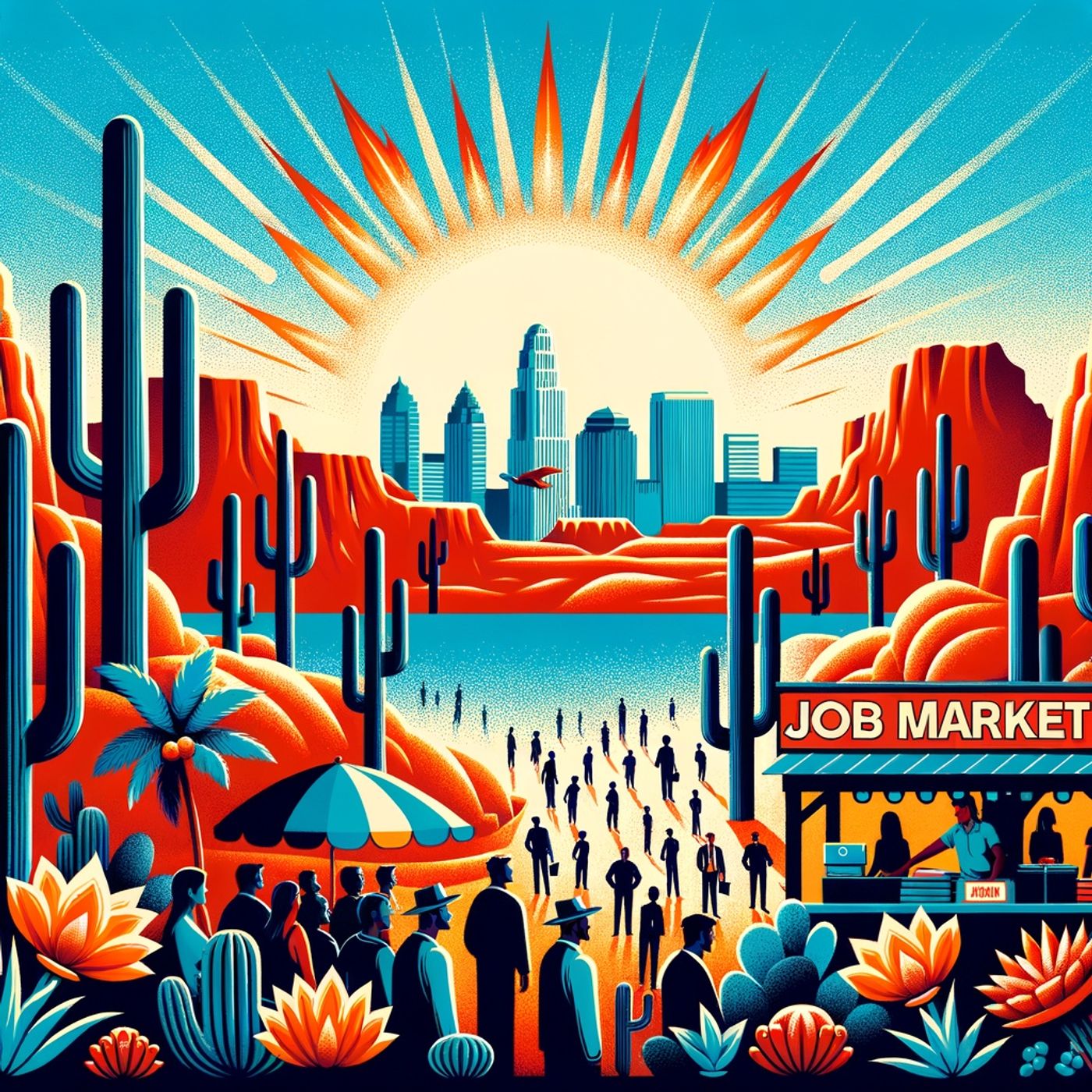Podcast Episode Details
Back to Podcast Episodes
Phoenix's Dynamic Job Market: Powering Economic Growth and Workforce Evolution
Phoenix continues to experience a dynamic job market marked by robust economic growth, industrial diversity, and evolving workforce needs. According to the Greater Phoenix Economic Council, the city attracted 54 new businesses in the past fiscal year alone, generating 7,206 new jobs and infusing $572 million in payroll, with more than two-thirds of these roles classified as high wage, averaging over $91,000 annually. Phoenix remains a recognized leader in economic development, drawing both domestic and growing international investment interest, especially in high-tech and advanced manufacturing.
The employment landscape is largely driven by construction, manufacturing, healthcare, logistics, and technology. Arizona Office of Economic Opportunity reports that metro Phoenix’s unemployment rate stood at 3.6% in May 2025, slightly below the state figure and well under the national average. The construction sector is a standout, with over 229,000 workers statewide, a pronounced shortage of skilled labor, and ongoing demand for electricians, machine operators, and supervisors, according to azcentral. This sector has doubled in size since the pandemic, yet roles often remain open as projects outpace available workers. Employers are responding with innovative benefits, improved training programs, and education initiatives to boost employee retention.
Beyond construction, Phoenix’s industrial real estate and manufacturing space inventory are among the largest in the nation, supporting continued momentum in logistics, warehousing, and advanced manufacturing. However, slowdowns in new construction and slight rises in vacancy signal a transition toward a more balanced market, as highlighted by Kidder Mathews’ recent reports. Healthcare and biosciences lead as major employers, with organizations like Mayo Clinic and Banner Health recruiting for advanced clinical roles and medical support staff. Technology and communications have also seen significant employment gains, driven in part by the ongoing expansion of semiconductor manufacturing and business services.
State and local government initiatives play a crucial role. Recently, Governor Katie Hobbs launched new apprenticeship and grant programs aimed at alleviating the skilled labor gap in construction and other trades, while the Center for the Future of Arizona underscores that expanding access to affordable childcare could unlock $12 billion in annual economic output and support more than 115,000 jobs statewide. Commuting patterns continue to shift as some sectors show preference for remote or hybrid models, but the majority of industrial and healthcare roles remain site based.
Recent developments include increasing international business interest, coordinated economic development efforts, and a push for holistic workforce solutions, including retention incentives like employee stock ownership plans and internal training universities. Seasonal hiring patterns remain pronounced in the retail sector, though recent uncertainty around consumer demand and tariffs has led employers to be more cautious about temporary hiring for the holidays.
Key findings suggest Phoenix is being reshaped by both rapid growth and structural change, with substantial opportunities in construction, advanced manufacturing, health services, and technology-related industries. The competitive landscape favors skilled candidates, while policy, infrastructure, and social supports like childcare remain pivotal to further unlocking the region’s economic potential.
Current job openings in the Phoenix area include a Nurse Practitioner or Physician Assistant in Hematology at Mayo Clinic, several Project Manager and Site Superintendent positions at Hensel Phelps Construction, and opportunities for skilled trades like electricians and machine operators at local general contractors. Thank you for tuning in, and don’t forget to subscribe. This has been a quiet p
Published on 2 months, 3 weeks ago